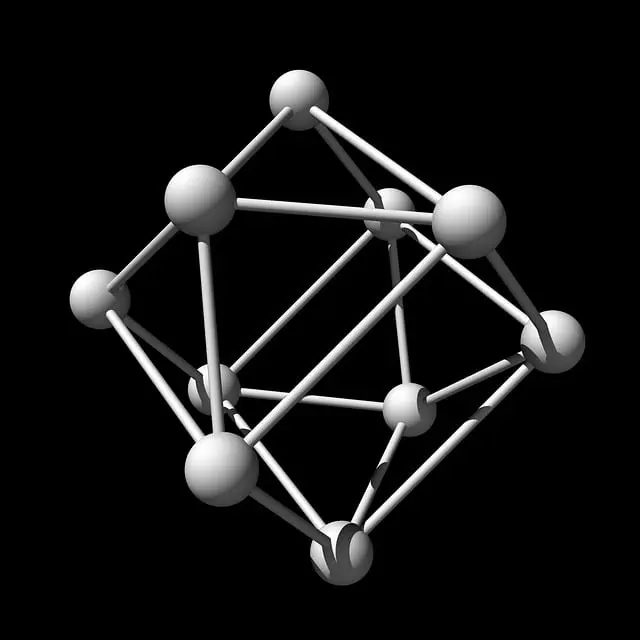Egyptian Blue Lotus Flower Tea, a historical beverage from ancient Egypt, has gained modern popularity as a natural supplement for athletic recovery and enhancement of kratom coaching regimens. This tea, derived from the Nymphaea caerulea plant, contains alkaloids like aporphine and nicotine, which are known to promote relaxation and euphoria. It's rich in antioxidants, helping athletes reduce oxidative stress and inflammation associated with intense training and competition. When combined with kratom, it can potentially improve sleep quality, manage pain, and boost mental focus, offering a holistic approach to recovery that can be customized to an athlete's needs for optimal performance and swift recuperation. The tea is also gaining recognition for its nutrient-rich properties, which may contribute to sedative and analgesic effects. Athletes can benefit from this natural supplement by incorporating it into their recovery plans under the guidance of kratom coaches who are knowledgeable about its effects and optimal brewing methods. It's important for individuals to consult with healthcare professionals before adding these supplements to their regimen, as responses and dosing can vary widely. This ancient tea, with its unique blend of history and potential health benefits, is a valuable tool in a comprehensive recovery strategy that includes rest, nutrition, and hydration.
Exploring the synergistic potential of Egyptian Blue Lotus Flower Tea and kratom coaching, this article delves into optimizing athletic recovery. By unraveling the secrets of this ancient elixir, we provide insights into its role in post-exercise muscle relaxation and pain management. Moreover, strategies for seamlessly incorporating this rejuvenating beverage into a comprehensive athletic recovery plan are outlined with expert guidance from seasoned kratom coaches. Join us as we traverse the intersection of tradition and modern wellness to enhance athlete performance and recovery.
- Unlocking the Secrets of Egyptian Blue Lotus Flower Tea in Athletic Recovery and Kratom Coaching
- The Role of Kratom and Egyptian Blue Lotus Flower Tea in Post-Exercise Muscle Relaxation and Pain Management
- Strategies for Integrating Egyptian Blue Lotus Flower Tea into a Holistic Athletic Recovery Plan, with Guidance from Kratom Coaches
Unlocking the Secrets of Egyptian Blue Lotus Flower Tea in Athletic Recovery and Kratom Coaching

Egyptian Blue Lotus Flower Tea, a beverage steeped in ancient history and tradition, has garnered attention within the realm of athletic recovery and kratom coaching. This tea is crafted from the sacred blue lotus flower, Nymphaea caerulea, which was revered by the Egyptians for its potential to induce relaxation and euphoria. Modern athletes are exploring its benefits as a natural aid in their post-exercise recovery process. The alkaloids present in the tea, including the well-known narcotics aporphine and nicotine, are believed to contribute to its relaxing effects, which can be particularly beneficial for muscle relaxation and stress relief after intense physical activity. Moreover, the tea’s antioxidant properties may assist in combating oxidative stress and inflammation, a common concern among athletes seeking to optimize their performance and recovery.
Incorporating Egyptian Blue Lotus Flower Tea into kratom coaching regimens offers a unique approach to enhancing overall well-being and recovery. Kratom coaches can guide clients on the appropriate dosage and timing of tea consumption to align with training schedules and physiological needs. The synergistic effects of both the blue lotus and kratom alkaloids may offer a comprehensive support system for athletes, potentially improving their sleep quality, pain management, and mental focus. This holistic approach can be tailored to individual recovery profiles, ensuring that each athlete’s unique response is considered and optimized for peak performance and swift recovery.
The Role of Kratom and Egyptian Blue Lotus Flower Tea in Post-Exercise Muscle Relaxation and Pain Management

When athletes engage in rigorous training or competition, their bodies undergo significant stress that can lead to muscle fatigue and pain. To aid in post-exercise recovery, many are turning to natural supplements such as Kratom and Egyptian Blue Lotus Flower Tea, which have gained attention for their potential benefits in muscle relaxation and pain management. Kratom, derived from the leaves of Mitragyna speciosa, is known for its alkaloid profile that can influence the body’s pain reception and promote a sense of calm and well-being. When ingested, Kratom may help to alleviate muscle soreness and reduce recovery time by interacting with opioid receptors in the brain, offering an alternative to synthetic painkillers.
Complementing Kratom’s effects, Egyptian Blue Lotus Flower Tea is another ancient remedy that has been used for centuries in various traditional medical systems. Rich in nutrients and compounds like apomorphine, this tea is believed to have sedative and analgesic properties. Its consumption can enhance the relaxation effects, further contributing to post-exercise recovery by easing tension in the muscles and potentially improving sleep quality, which is crucial for overall recovery. The combination of Kratom and Egyptian Blue Lotus Flower Tea may offer a synergistic effect that supports athletes in their pursuit of optimal performance and rapid recovery, allowing them to maintain peak physical condition. However, it is essential for individuals to consult with healthcare professionals before integrating these supplements into their regimen, as dosing and individual responses can vary greatly.
Strategies for Integrating Egyptian Blue Lotus Flower Tea into a Holistic Athletic Recovery Plan, with Guidance from Kratom Coaches

Integrating Egyptian Blue Lotus Flower Tea into a holistic athletic recovery plan can be a beneficial addition, particularly under the guidance of experienced kratom coaches. The Egyptian Blue Lotus Flower Tea, steeped in ancient tradition and revered for its potential health benefits, has gained attention in contemporary wellness practices, including those focused on athletic recovery. Its reported properties, which may include relaxation and mood enhancement, align with the needs of athletes seeking to mitigate stress and promote mental clarity after intense physical activity. Kratom coaches can provide valuable insights into how this tea fits within a broader recovery regimen that might already include rest, nutrition, and proper hydration. They can advise on optimal brewing techniques to ensure the tea’s efficacy and help athletes understand its subtle effects, allowing for tailored dosage adjustments based on individual physiology and specific athletic demands. By incorporating this natural supplement into a well-rounded recovery plan, athletes may experience improved recovery times, enhanced overall well-being, and potentially greater performance outcomes in their training and competitions.
When considering the integration of Egyptian Blue Lotus Flower Tea into an athletic recovery protocol, it’s crucial to approach its use with caution and respect for its potency. Kratom coaches play a pivotal role in educating athletes on the responsible consumption of this tea. They can guide users through the nuances of its interaction with the body, highlighting the importance of maintaining a balanced approach to recovery that includes conventional medical advice and oversight when necessary. Additionally, these coaches can help monitor the tea’s effects over time, ensuring that it complements rather than competes with other recovery methods for optimal athletic performance and health maintenance. With the right guidance, Egyptian Blue Lotus Flower Tea can be a powerful ally in an athlete’s quest for peak physical and mental condition.
Incorporating Egyptian Blue Lotus Flower Tea into athletic recovery regimens, in conjunction with kratom coaching, presents a promising approach for athletes seeking to enhance their post-exercise relaxation and pain management. This article has shed light on the benefits of this ancient remedy, revealing its potential as a natural aid in recovery processes. Athletes are encouraged to explore this holistic strategy under the guidance of trained kratom coaches who can provide personalized coaching for optimal outcomes. As research continues to evolve, the integration of such botanical compounds within sports medicine and performance enhancement stands as an exciting frontier, potentially revolutionizing the way athletes approach recovery.






